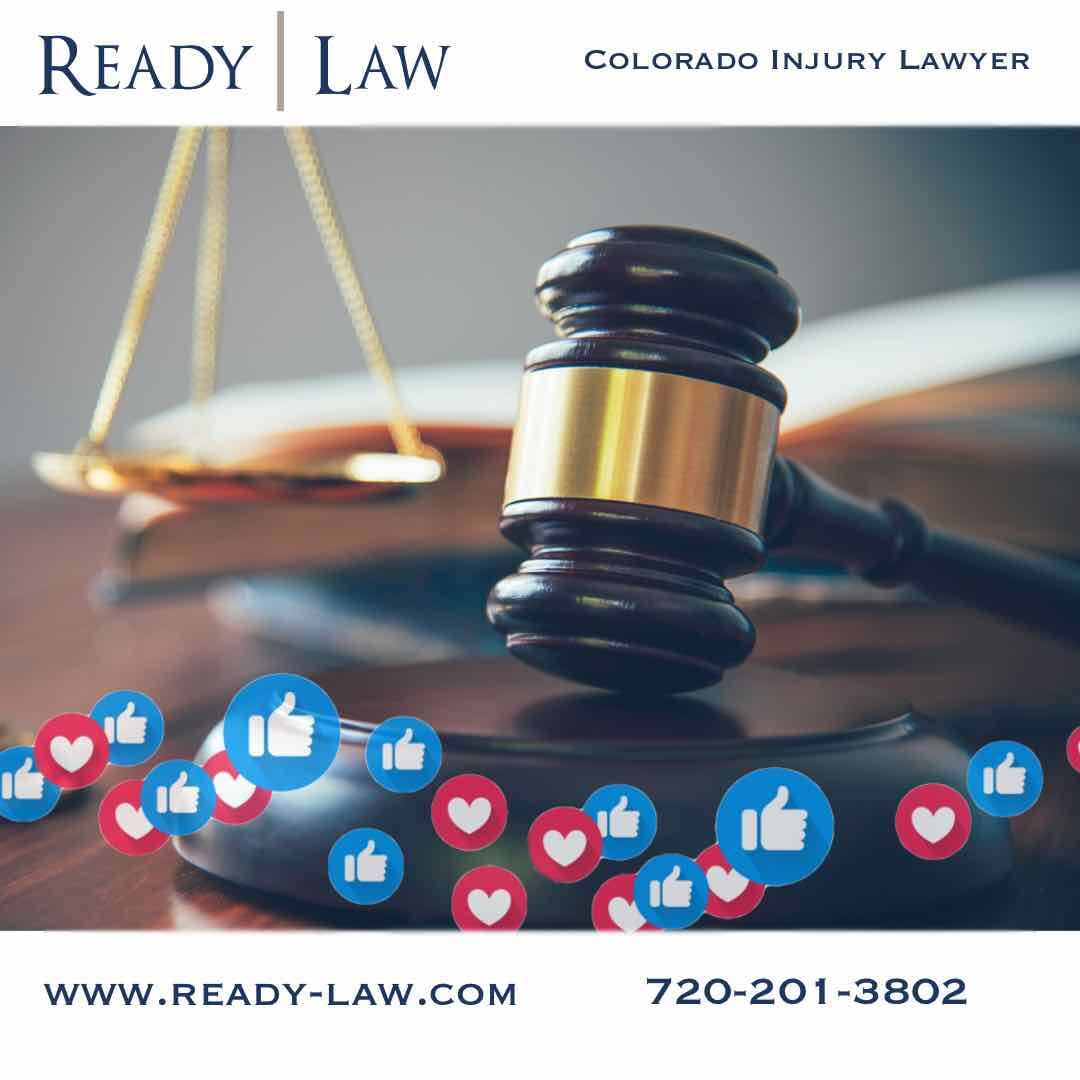Social Media Can Hurt Your Colorado Personal Injury Case

If you have a personal injury case in Colorado, it pays to put some thought into how your use of social media could impact your claim. The days of parties to an injury lawsuit overlooking social media posts during preparation of their cases are gone, and no social media platform is exempt. In short, the only way to be sure your social media posts and communications will not be used in court is to not use social media. For many that is simply not a realistic option.
Disclosure
Almost every Colorado personal injury case that results in the filing of a formal lawsuit will include some form of request for disclosure of social media content. That does not mean the other side in your case is waiting for a lawsuit to have a look at what you’re up to online. However, after your case is filed with a court, both sides might expect the collection of social media content to become more formal and thorough. Not long after filing a case, one side will likely seek disclosure from the other of social media activity including photos, videos, comments, likes, direct messages, etc. Even location check-ins can become evidence in an injury case. Because these requests normally take the form of either a subpoena or a demand that the user himself/herself provide the requested information, privacy settings can only do so much to protect the user.
Reduce the Risk of Misuse
Some general rules of thumb to reduce the risk of some post or communication being misinterpreted and used against the injury victim include careful consideration of each and every post and interaction. Someone involved in a lawsuit might first want to ask themselves questions such as: What might a jury make of this post? Would I be embarrassed if it were read out in open court? Does this post have anything at all to do with my injury or recovery? Could an opposing lawyer potentially twist the meaning of what I am posting to mislead a jury or judge?
Many people put the best version of themselves forward on social media, and that could mean hiding an injury or anything they might feel is depressing. In an effort to give the impression that life is good, social media users sometimes only post happy and carefree depictions of their lives. Those can easily be manipulated to convince a jury or judge that everything was actually fine, and the victim’s life must not have been negatively impacted by an injury, regardless of how serious it may seem. Such manipulation is dishonest and a disservice to the public and our justice system. But what can an honest and injured plaintiff do to minimize the risk?
It is important to have this discussion with an experienced personal injury attorney at the beginning of your case. If an injured plaintiff is an active user of social media and must remain so, it may help reduce the risk of misuse of the information posted there to consider, among the many other questions about any social media posts, does anything I am posting give the false impression that all is well?
Requests for discovery of social media communications are always changing. But they can range from very narrow requests for content directly related to an injury, to very broad requests such as “anything related to enjoyment or non-enjoyment of life”. Upon receipt of that last one, I couldn’t help wondering what a person could post on social media that couldn’t somehow be argued to fall within that incredibly broad description.
It is important to know that while social media can do so much good, those involved in personal injury cases should use extreme caution when interacting on any social media platform. Misunderstandings and misuse of social media interactions and communications can cause serious harm to an injury case.
Discuss Your Social Media Use With a Personal Injury Lawyer
If you are wondering how best to protect your right to recovery in your Colorado personal injury case, call Denver personal injury lawyer Vernon Ready. It costs you nothing up front to get your case started, and I only get paid if I recover money for you. Call 720-201-3802 to Get Ready.
